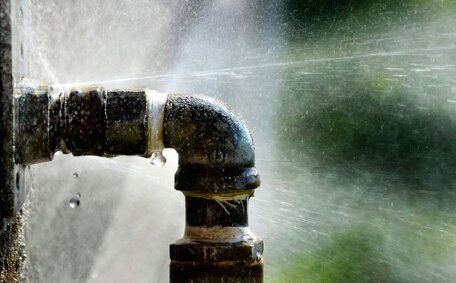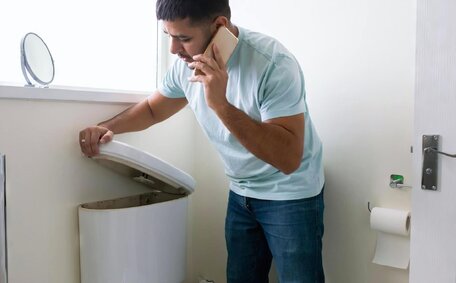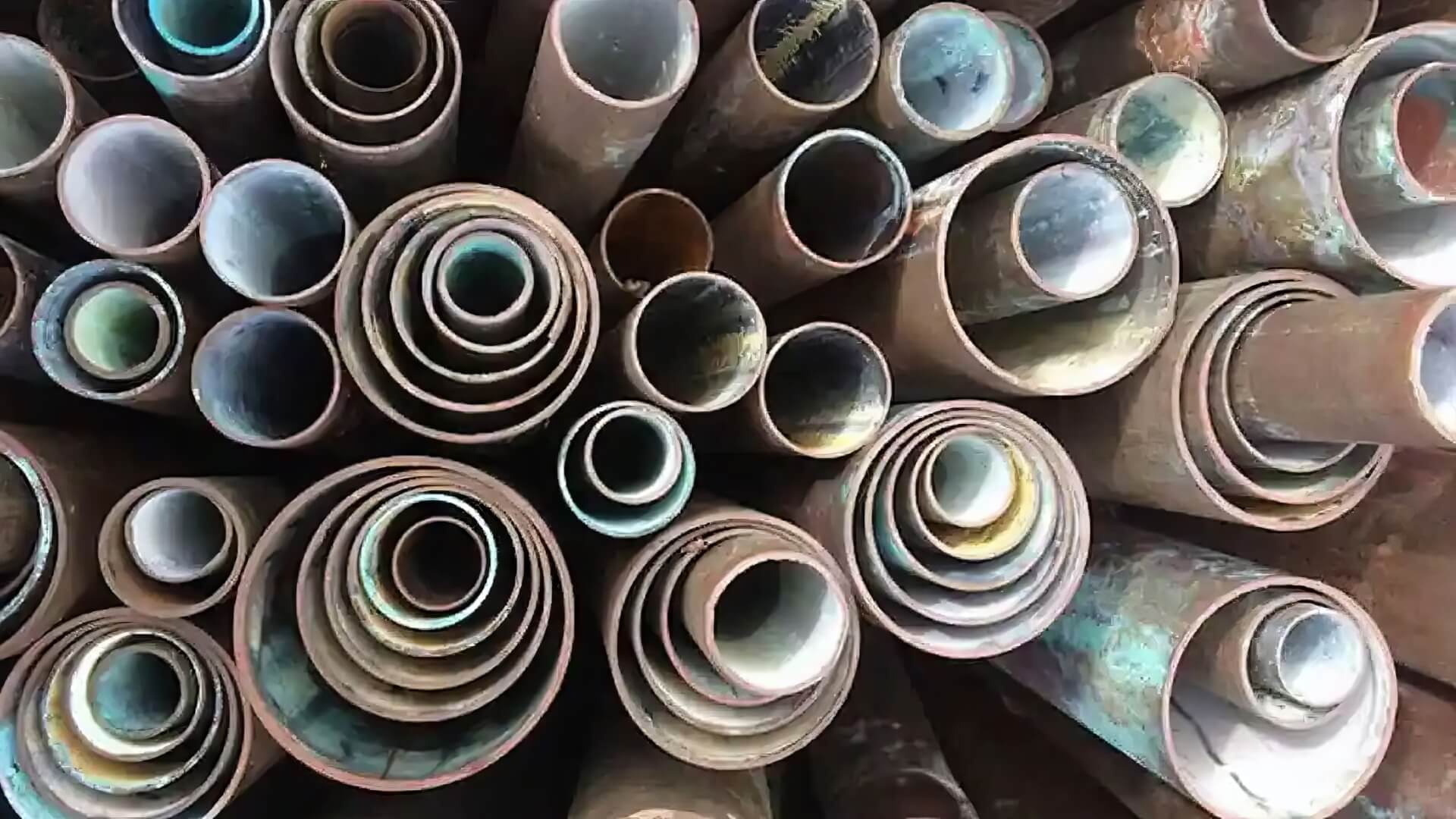
10 Signs Your Hot Water Heater Will Fail
If your water heater is old, leaking, rusty, noisy, not heating water properly or has low pressure, it could fail soon. Get your hot water system inspected today.
Read MoreIn Mortdale, Sydney, the efficiency of water heaters is significantly influenced by climate, which similarly impacts systems in locations like the United States. Colder winters and hotter summers can increase energy consumption and costs for electric hot water systems and their gas counterparts. Heat pumps, however, work well across diverse weather conditions, proving more adaptable than electric counterparts.
During summer, solar gain can cause conventional electric hot water systems to waste standby energy, despite having solar panels.
While gas hot water systems have their benefits, they suffer from standby heat loss akin to electric storage tanks. Heat pump water heaters excel, as they extract latent heat from the ambient air and perform better as a result.
Heat pumps offer consistent hot water delivery with minimal standby losses throughout the year. Their coefficient of performance exceeds 1.0, surpassing the 100% efficiency mark and contributing less to carbon dioxide emissions by smartly harnessing heat energy from the air. Correct sizing as per demand prevents overworking in peak conditions. Solar and solar heat pump systems both maintain their efficiency in sunnier months but may require supplementary heating in colder seasons.
In addition to climate, the efficiency of hot water systems is also affected by factors such as shading and insulation. Ensuring proper maintenance as per manufacturers’ guidelines optimises performance. Upgrades to a comprehensive pv system array or efficient heat pumps can slice energy bills and reduce carbon emissions despite environmental changes.
All water heating systems undergo heat loss during operation, which impacts energy usage and operating costs. Heat is lost through the tank walls, connections and outlets. The rate of loss depends on insulation levels, the temperature differential and surface area.
Well-insulated electric hot and gas storage water tanks conserve thermal integrity, delivering a gratifying rate return on heat retention, forfeiting a mere 3-5 degrees Celsius when dormant overnight. Older tanks, demonstrating a poorly insulated system, how much it can lose is considerably more. Heat pumps, among other heating systems use their adeptness for district heating to actively draw ambient thermal energy, upholding very nominal standby loss of 1-2 degrees.
Greater heat losses necessitate daily reheating of the water tank, which in turn affects utility bills, water usage, and indoor air quality. The perpetual nature of heating cycles proliferates running costs and total energy bills. Boosting insulation levels with a thermal jacket can also curb heat losses by up to 75% in conventional systems.
Insulation slows down the transfer of heat energy to the surroundings. A well-insulated home further prevents external heat gains and losses.
Adequate insulation can achieve energy savings and lower water heating costs by 20-30%. Upgrading to better insulated systems like heat pumps also lowers energy usage, keeping more money in your pocket.
Fuel type, insulation, home energy efficiency, and usage patterns all govern operational costs. Monitoring usage, upgrading insulation and switching to heat pumps can optimise efficiency for your hot water dhw despite environmental changes.
Selecting the appropriate type of water heater depends on local environment factors such as water quality, climate, and solar energy availability. Understanding how these impact efficiency and costs helps match supply to demand.
Water hardness and pH influence system lifespan and maintenance needs. Treatment may be necessary to optimise the performance of your domestic hot water systems.
Energy usage patterns and the choice of ideal system types are largely governed by climate; solar thermal systems are effective in warmer regions with ample solar radiation.
In cooler regions with more heating degree days, gas boiler hot water systems which utilise ambient warmth become increasingly suitable.
Besides climate, dhw systems should align with usage needs. Considering different types of systems, gas or heat pumps fare better for high demand scenarios. Solar works for intermittent use if sized correctly.
Homes with significant domestic hot water needs require larger storage tanks and greater heating capacities.
Installation matters too - outdoor units need sun and shade protection. Indoor tanks should minimise heat losses through insulation and placement. Optimal heat pump solar hot water system selection and installation ensures efficiency despite environmental changes.
There are several ways to improve efficiency even with an existing hot water system. Simple improvements can reduce heat losses and consumption, demonstrating how an updated hot water system can lower energy bills.
Installing insulation wraps or tank blankets containing foam or fibreglass slows standby heat losses, an approach compatible with electric heat pump systems. It also keeps water hotter for longer after heating. Pipe insulation prevents waste from the hot water line.
Switching to WA standard 3-star rated low-flow showerheads can reduce water usage by up to 30%. This means the system reheats less often, enabling you to save money on your energy usage. Aerators on sink taps work similarly.
Setting your hot water heater thermostat to 60°C provides hot water for most needs and helps to cut reheating expenses. Turning the thermostat down when away for longer periods also saves standby energy losses.
Elevating to higher efficiency with a pump solar hot water unit constitutes a substantial long-term improvement. But adding insulation and reducing usage through pressure and temperature control provides reasonable savings with an existing system.
Different water heaters have unique environmental footprints that can be measured by life cycle assessment, depending on their energy sources and effectiveness. When choosing a system, it’s important to consider both operating costs and lifetime emissions.
Electric storage tanks generally have a greater environmental impact than natural gas or heat pump alternatives, especially when grid electricity is derived from fossil fuels. Nevertheless, they proffer no immediate onsite contributions to air pollution. Heat pumps leveraging ambient thermal energy can cut emissions by over 50% compared to electric models.
Solar systems have a minimal operational environmental impact, though manufacturing solar thermal collectors requires considerable energy. Solar-heat pump hybrids optimise renewable energy use based on conditions.
In colder climates, air-sourced heat pumps show declining efficiency but still outperform electric systems heaters. Modern pump solar and electric water heaters showcase robustness, operating effectively even in sub-zero temperatures. Opting for larger capacity and correctly sizing heat pumps for the location mitigates this issue.
While tankless water heaters, like gas instantaneous models, provide hot water rapidly, a pump water heater may offer a more balanced approach to efficiency and emissions. Newer condensing models, which can used to limit emissions, achieve this by reusing waste heat.
Weighing life cycle costs and emissions, one must consider the present value of the most ecologically congenial alternative. Solar-heat pump systems fare best by utilising renewable energy while maintaining year-round efficiency.
Heat pump and solar hot water systems take different approaches to water heating, with unique strengths and limitations. Key factors to compare include upfront costs, operating expenses, efficiency, environmental footprint and reliability.
Performance relies on adequate solar access, a factor crucial in the cycle assessment of the system.
The energy-intensive production of solar collectors affects embodied emissions; however, their operational carbon footprint remains small. Solar thermal systems effectively utilise the sun’s energy through roof-mounted collectors.
Heat pumps exploit ambient thermal energy for water space heating and water heating through refrigeration cycles. As they are powered by electricity, their carbon footprint is contingent on the source of the energy. However, modern electric water heaters operate efficiently even below freezing temperatures.
Solar hot water systems can accrue 30-50% lower lifetime costs compared to conventional electric or gas heating, notably in regions basked in sunshine. Heat pumps demonstrate significant long term savings, operating with more energy efficiency, leading to reduced energy bills. Government rebates improve affordability of both technologies.
A system that makes use of solar hot water combining solar thermal collectors with heat pump backup provides the best of both worlds - maximising renewable energy utilisation while maintaining efficiency and reliability year round. Correctly sized hybrid systems optimise savings and environmental performance.
Upgrading to a newer, more efficient heating system for hot water can provide significant benefits in terms of energy savings, reduced emissions, and long-term cost reductions. Advancements in technologies such as solar heat pumps and solar thermal systems offer homeowners eco-friendly ways to reduce energy costs.
Modern new hot water heaters significantly reduce greenhouse gas emissions compared to conventional systems.
Their efficiency remains high across seasons, leveraging ambient thermal energy. Solar thermal systems use renewable solar energy for water heating, remaining efficient throughout the seasons by leveraging ambient thermal energy.
While these systems are more expensive initially, government rebates and incentive schemes improve affordability. The savings from lower energy expenditures often counterbalance the initial outlay over time. Appropriately scaled systems yield significant cost savings over generous lifespans of 15-20 years.
Besides new installations, upgrades like insulation jackets, pipe wraps and low-flow fixtures help optimise existing system efficiency at a minimal cost. Monitoring usage patterns also helps trim energy bills.
For optimal returns, homeowners could consider upgrading to efficient heat pump systems provided by reputable companies, such as those registered as Pty Ltd. Units sized to household requirements and local climate ensure reliable, low-emission water heating for years to come.
There are several government rebates and incentives available for Mortdale residents who install energy-efficient hot water systems.
At the federal level, the Australian Renewable Energy Agency (ARENA) offers rebates on solar and heat pump hot water systems. Amounts vary based on factors like household income and system size. There are also state-level programmes such as the NSW Climate Change Fund which provides discounts on highly efficient hot water units.
The federal government’s Technology Investment Boost provides temporary full expensing for businesses that purchase eligible assets like solar hot water systems. This allows businesses to claim an immediate deduction.
By taking advantage of these rebates and tax incentives, Mortdale households and businesses can offset the higher upfront costs of efficient hot water system upgrades. Not only do they save in the long run from lower energy bills but also reduce their carbon footprint.
To learn more about specific rebate and incentive eligibility for properties in Mortdale, email us or call today. Our team can advise on the most cost-effective and energy-saving hot water upgrade path for your home or business.
There are several easy ways to reduce your hot water system’s energy use and save on electricity bills:
Small everyday changes, complemented with proper maintenance, pave the way for a new hot water system, substantially reducing energy appetite and emissions. For additional advice on optimising your hot water system or to understand savings from an upgrade, email or call our team at Mortdale Plumbing today.
If your water heater is old, leaking, rusty, noisy, not heating water properly or has low pressure, it could fail soon. Get your hot water system inspected today.
Read MoreIf you have plumbing fixtures that are over 10 years old or showing signs of wear like leaks and cracks, it’s important to replace them to prevent more costly water damage in the future. Replacing worn fixtures improves water efficiency.
Read MorePipe relining is a trenchless method that renews pipes from the inside out. It involves draining, drying and scrubbing the pipe interiors before applying materials like silicone, PMMA or epoxy resins to create a resilient, soft, temporary liner inside the existing pipes.
Read MoreMortdale, 2223 NSW
We will call back as soon as possible.




